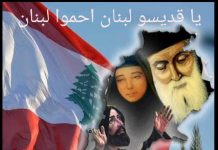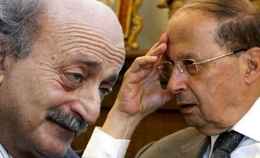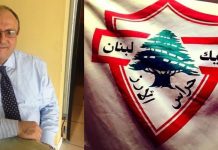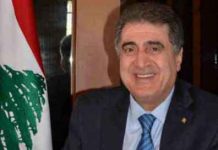Jumblatt says Aoun, Hariri have ‘stumbled’
The Daily Star/May 09/17
BEIRUT: Progressive Socialist Party leader Walid Jumblatt described Speaker Nabih Berri as his “only ally,” saying that major issues have caused President Michel Aoun to “stumble.”
“Speaker Berri is my ally … he is still my ally, and my only ally,” Jumblatt said in a lengthy interview with Al-Akhbar newspaper, published Tuesday.
Jumblatt said that Aoun’s administration is pushing Foreign Minister Gebran Bassil’s sectarian-based two-stage “qualification” vote law proposal.
Berri and Jumblatt have rejected Bassil’s proposal, warning that it would deepen sectarian divisions in the country.
When asked if the government has made any progress since the election of President Michel Aoun in October and the formation of Prime Minister Saad Hariri’s Cabinet, Jumblatt said: “Not at all.”
“He [President Aoun] carried the slogan of combating corruption, but he didn’t combat any corruption and will not be able to,” he said.
He accused Aoun of using “an arrogant” approach with rivals, “which will not be fruitful.”
“I don’t differentiate between the president and the Cabinet,” the PSP chief said, when asked if Hariri was included in his statement.
He added that he had agreed on the election of Aoun to end more than two-and-a-half years of presidential vacuum.
“We said let’s start, but the beginning was stumbling.”
“It’s not a personal issue. Some matters are [not working]. There’s a term and a system [that don’t fit]. They swamped themselves with headlines bigger than themselves and refused to back down,” Jumblatt said.
The PSP chief described his relationship with PM Hariri as neutral. “He has chosen a certain path that we haven’t been used to. So I decided to step back. Contacts happen every once in a while.”
Electoral Law Division
Despite the gloomy division between rivals over the country’s new vote law, Jumblatt called on the Lebanese Forces to play a role with its allies and convince the Free Patriotic Movement to accept new ideas.
“Our priority with the LF is [acquiring] unity in [Mount Lebanon] and affirming reconciliation … and the qualification proposal blasts this path.”
He concurred that there are new political affiliations that have aligned him with Hezbollah, LF and Amal Movement – led by Berri – and placed the Future Movement and the FPM together.
“We need to agree on an idea that unites us.”
Jumblatt stressed that the Parliament’s tenure would not be extended. “There’s a clear thing called the 1960 majoritarian vote law. A technical extension could occur if we agree on a vote law based on proportionality for the Parliament and [the establishment of] a Senate ahead of May 15.”
He said that the “technical” extension would last until October.
Parliament has extended its term twice since 2013.
Jumblatt added that the Cabinet would not vote on the electoral system. “It’s a Constitutional matter. We have agreed to reach consensus.”
In an unexpected move during last week’s Cabinet session at Baabda Palace, President Aoun said he supported voting on an electoral law in the absence of an agreement in order to avoid a vacuum in Parliament.
Speaker Nabih Berri and Jumblatt staunchly opposed the move, and called for an agreement on this sensitive issue. Hezbollah leader Sayyed Hasan Nasrallah has also cautioned against resorting to a vote on an electoral law.
Jumblatt reiterated that the Senate should be led by a Druze.
The 1989 Taif Accord stipulates the establishment of a Senate. The common assumption is that it should be headed by a Druze.
Jumblatt told Al-Akhbar that if rivals fail to reach an agreement soon, “they would end up in a futile game that would have negative repercussions on Lebanon’s economy.”
Politicians are still scrambling to agree on a new vote law.
Despite the lingering differences over the number and size of electoral constituencies, the main political parties are in agreement that proportionality should be the core of any vote law to replace the disputed 1960 majoritarian system used in the last parliamentary elections in 2009.
On April 15, Parliament was set to discuss a proposal to extend MP’s terms.
However, President Aoun used his prerogatives based on Article 59 of the constitution to suspend the Parliament’s session once for a period of a month to grant parties a final chance before the legislative session on May 15.
Aoun has rejected the extension of terms and propositions of vacuum in Parliament.
Parliamentary elections were originally scheduled to take place between May 21 and June 21, yet political deadlock is expected to delay elections beyond June.



















